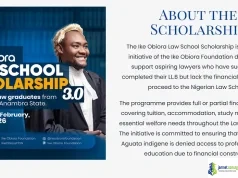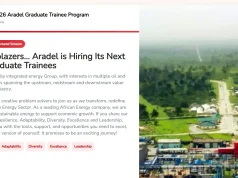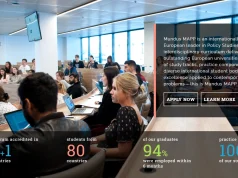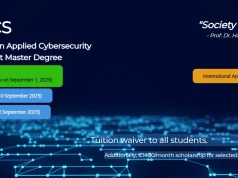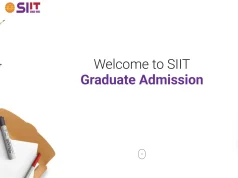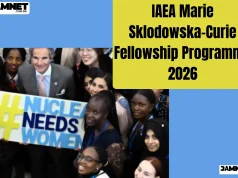Applications are now open for the Fully Funded Commonwealth Masters Scholarship 2026 for international students


The Commonwealth Masters Scholarship is a prestigious, fully-funded opportunity for students from low- and middle-income Commonwealth countries to pursue their Master’s degree in the UK.

Join our Telegram Channel for Updates
Funded by the UK Foreign, Commonwealth & Development Office (FCDO), the scholarship is designed to support future leaders and innovators who have the potential to contribute to sustainable development in their home countries.
This guide provides a detailed overview of the scholarship for the 2026/2027 academic year, clarifying the critical two-step application process and other key requirements.
How the Scholarship Works
The Commonwealth Scholarship Commission (CSC) operates the scholarship program. Its primary mission is to provide opportunities for talented and motivated individuals who could not otherwise afford to study in the UK. The CSC selects candidates based on a rigorous set of criteria, including academic merit and the potential for their studies to drive meaningful change. You can read more about the qualities of scholarship winners here.
Scholarships are offered under six core development themes:
- Science and technology for development
- Strengthening health systems and capacity
- Promoting global prosperity
- Strengthening global peace, security and governance
- Strengthening resilience and response to crises
- Access, inclusion and opportunity
Scholarship Benefits
The scholarship is fully funded and covers the following:
- Approved airfare from your home country to the UK.
- Full tuition fees.
- A stipend (living allowance) of £1,452 per month, or £1,781 per month for scholars at universities in the London metropolitan area.
- A warm clothing allowance of £563.
- A study travel grant for essential travel during your studies.
- A one-off thesis grant (if applicable).
- A full return airfare from the UK to your home country at the end of the scholarship.
Eligibility Criteria
To be considered for the Commonwealth Masters Scholarship, you must meet the following criteria:
- Citizenship: Be a citizen of or have been granted refugee status by an eligible Commonwealth country.
- Residency: Be a permanent resident of an eligible Commonwealth country.
- Academic Qualification: By September 2026, hold a first degree of at least upper second-class (2:1) honours standard, or a lower second-class degree (2:2) plus a relevant postgraduate qualification. For advice on handling a low GPA, click here.
- Financial Need: Be unable to afford to study in the UK without the scholarship.
- Readiness: Be able to start your academic studies in the UK at the start of the UK academic year in September/October 2026.
Essential Required Documents
When applying, you will need to submit the following documents:
- High-quality scanned copy of your passport or national ID card.
- Full academic transcripts and degree certificates.
- Two academic references. To learn how to ask for a recommendation letter for a scholarship, click here.
- Two professional references (if applicable).
- Your Development Impact Statement. This is a critical component. You must clearly explain how your proposed course of study is relevant to global and national development issues, and how you plan to use the knowledge and skills gained to create positive change in your home country after your studies. For tips on how to write a scholarship essay that wins, click here and for a guide on writing a “Why I deserve this scholarship” essay, click here.
The Two-Step Application Process
This is the most critical part of the application process. Unlike most scholarships, you cannot apply directly to the Commonwealth Scholarship Commission. You must be nominated by an approved nominating agency. For general advice on applying for scholarships, you can read this guide on how to apply for scholarships successfully.
Step 1: Apply to a Nominating Agency
Your first step is to apply to one of the CSC’s approved nominating agencies in your home country. These agencies are responsible for selecting and nominating eligible candidates to the CSC. The three main types of nominating agencies are:
- National Nominating Agencies: These are government bodies, often the Ministry of Education, that manage the application process for your country. This is the main route for most applicants.
- Selected Universities: Some universities in Commonwealth countries are authorized to nominate their top students.
- NGOs and Charitable Bodies: Certain non-governmental organisations work with the CSC to nominate candidates, often with a specific focus (e.g., for disabled applicants or those affected by conflict).
Important: Each nominating agency has its own unique application form, process, and internal deadline. You must research and contact the appropriate agency in your country to get started.
Step 2: Apply on the CSC Online System
After submitting your application to your nominating agency, you must also complete a separate application on the CSC’s online application system (EAS). Your application on the EAS must be submitted by the CSC’s deadline. The nominating agency will review your EAS application along with your internal application.
Important Dates for 2026/2027 Academic Year:
- CSC Application Portal Opens: Tuesday, September 2, 2025
- CSC Application Deadline: Tuesday, October 14, 2025 (4:00 PM GMT)
Note: Your nominating agency may have an earlier deadline. It is your responsibility to confirm their specific deadlines.
Application Deadline: October 14, 2025
Frequently Asked Questions
1. Is IELTS required? The CSC does not explicitly require an IELTS score for your scholarship application. However, all UK universities require proof of English language proficiency for admission. Therefore, you must be prepared to submit an IELTS or other accepted English proficiency test score to the university you wish to attend.
2. Can I apply if I already have a Master’s degree? The CSC will not normally fund a second Master’s degree. However, if your second Master’s is in a different field and can be justified for your development impact, you may be considered.
3. What are the key qualities of a scholarship winner? Scholarship winners often demonstrate strong academic performance (high GPA), leadership skills, community involvement, and a clear vision for how their studies will create a positive impact.
4. How important is a good GPA for a scholarship application? While a strong GPA is a key factor, a lower GPA isn’t a deal-breaker. You can explain a low GPA in your personal statement by focusing on an upward trajectory, highlighting strong test scores or work experience, or explaining extenuating circumstances without making excuses.
5. Why should I study my master’s abroad? Studying abroad offers numerous benefits, including exposure to different teaching styles, a chance to improve language skills, a global network of contacts, and increased attractiveness to employers who value international experience and cross-cultural communication skills.
6. Can I apply for a student loan as an international student? Yes, but federal loans are not typically available to international students. You will need to explore private education loans, which often require a co-signer who is a citizen or permanent resident of the country where you are studying.
7. How should I approach asking for a recommendation letter? Be professional and ask at least one month before the deadline. Provide your recommender with all the necessary information, including the scholarship’s details, your resume, and specific examples of your achievements and qualities you want them to highlight.
8. What are some good student accommodation tips for moving abroad? Start your search early, create a realistic budget that includes all expenses, and understand the different types of housing available (university halls, private residences, or shared apartments) to find the best fit for your needs and lifestyle.
9. How do I get a post-graduation work permit in the UK? The UK offers a “Graduate route” visa that allows international students to stay and work for up to two years after completing their degree. To be eligible, you must have completed a qualifying course and apply from within the UK before your current student visa expires.
10. What are some key questions to ask myself before studying abroad? Before committing to studying abroad, ask yourself about your academic and career goals, your preferred lifestyle (city vs. small town), the cost of living, and the cultural norms of your potential destination.

